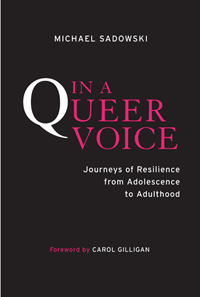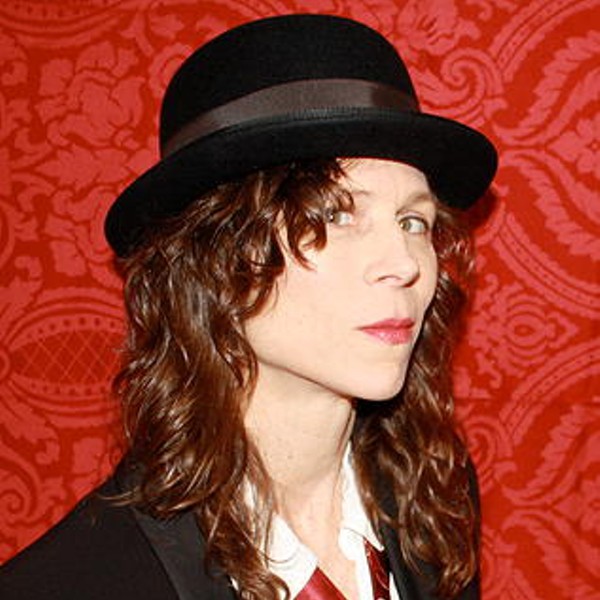
"Jumping off the gw bridge sorry."
With this suicide note, posted on Facebook in 2010, Rutgers freshman Tyler Clementi awoke America to the plight of bullied LGBTQ teens, who are four times more likely to kill themselves than heterosexual peers.
This situation was not news to counselors, advocates, and activists. They have been working for decades to establish safeguards against the incessant abuse–and the insidious neglect—that LGBTQ youths face at school, at home, and in society.
In this ongoing crisis, Bard College professor Michael Sadowski's In a Queer Voice is a valuable call to action. The book stems from his 2003 study at Harvard. Its format was both simple and innovative: Interview LGBTQ teens about their lives, then reinterview the same people seven years later.
"The voices heard in these chapters cannot provide all the answers," the author admits, "but the process clearly needs to start with listening."
We meet six compelling people who share their stories. The most harrowing tale comes from David. Seventh grade began with taunts of "faggot" that escalated into physical harassment and death threats. Teachers ignored the problem. There was no gay-straight alliance (GSA) to support him. A guidance counselor even suggested his effeminate behavior prompted the abuse. Family support was minimal. Small wonder that David found himself one afternoon sitting on his parents' bed, a gun against his head. He decided against suicide and opted to switch schools, but the homophobia continued. Only with college did David's life change. Asked in the follow-up interview to assess his current mindset, David offers, "I'm pretty happy with my life. But how happy I am is different than how happy I am with my life. Happiness is hard."
Ruth is a divinity student who remained closeted for years—even after joining her GSA group. Travis survived drug addiction and cancer to become a high-profile gay activist, only to retreat later to a cloistered life. "I'd like a nice, calm, kind of mundane existence," he said. Jordan is torn by indecision, choosing gender reassignment and later halting the process. Now a self-identified lesbian, she is "finally okay with just being myself"—although she still considers surgery. Eddie has a happier tale: Unconditional love from his mother was complemented by support from his GSA. The president of a gay youth group, he also works in international activism.
Moments of deep psychic pain dominate these tales, but the recollections are buoyed by a rough-hewn eloquence. Lindsey explains why cutting herself was the response to peer homophobia: "[I] just wanted to show the pain that I was feeling on the inside on the outside, to make it kind of go away. So it kind of made it feel—I don't know. It made me know that I was alive still."
In a Queer Voice is an academic book above all, tethered to a clinical format and steeped in therapy-speak. Therefore, each pitch-perfect oral history is followed by analysis from Sadowski that is often more procedural than revelatory. To his credit, however, the author provides a directory of social service sources and makes strenuous recommendations for school policy reform.
A final caveat: To protect identities, Sadowski employs pseudonyms as well as false descriptions, coupled with fictional names of schools and towns. The technique sometimes distances the subjects emotionally from the reader, who may puzzle over fact versus fiction. Still, In a Queer Voice effectively elevates the professional discourse on LGBTQ youth.
Michael Sadowski will appear 3/18 at 7pm, Olin Room 102, Bard College.
















